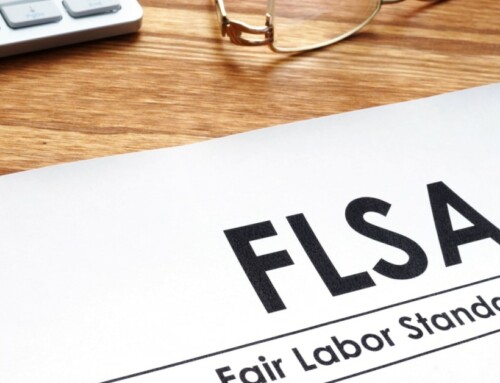For companies in South Carolina, one of the most-effective ways to mitigate against the risk of employment-related liability is to establish and implement appropriate policies and procedures. In order to serve their intended purpose, these policies and procedures must be custom-tailored to a company’s operations and risks, and they must adequately address all pertinent provisions of South Carolina and federal law.
While there are many long-standing principles in the area of employment law, compliance is also somewhat of a moving target. For example, the South Carolina legislature and the U.S. Supreme Court both established new obligations for employers last year, and the COVID-19 pandemic has presented numerous onerous new challenges for employers as well.
10 Important Employment Policies for Companies Doing Business in South Carolina
Many employers will also face additional obligations based on the nature of their operations, the size of their workforce, and various other factors. With these considerations in mind, it is virtually impossible to create a one-size-fits-all list of necessary policies and procedures. However, there are several types of policies that essentially all employers should have, and failing to implement these policies can increase the risk of employee litigation as well as the risk of enforcement action by the South Carolina Human Affairs Commission (SHAC) and other agencies.
1. At-Will Employment Policy
South Carolina is an at-will employment state, which means that employers can terminate employees at any time with or without cause. However, South Carolina employers still can (and often do) face employee lawsuits for wrongful termination. An effective at-will employment policy will clearly establish the terms of employment with the company, and it will provide guidelines for the proper and timely termination of at-will employees.
2. Anti-Discrimination Policy
Several state and federal laws prohibit discrimination in South Carolina workplaces. This prohibition extends to all aspects of the employment relationship, from hiring to pay rates, and from job assignments to termination. South Carolina employers need to adopt comprehensive anti-discrimination policies that address all pertinent sources of statutory authority, and they must ensure the adequate implementation of these policies through mechanisms such as the posting of signs and employee training.
3. Anti-Harassment Policy
While harassment is considered a form of discrimination, instances of harassment in the workplace present unique challenges and risks for South Carolina employers. With this in mind, companies should specifically address harassment in their policies and procedures; and, here too, effective implementation and enforcement are essential.
4. Job Advertisement and Recruitment Policy
Miscues with respect to job advertising and recruitment can lead to the potential for significant liability exposure. All job advertisements need to be legally compliant, and companies must ensure that their recruitment practices are fully consistent with both state and federal law. While allegations of discrimination in the hiring process are perhaps the main concern, employers must ensure that their job advertising and recruitment practices do not raise other concerns as well.
5. Workplace Safety Policy
All employers need to prioritize workplace safety; and, among other measures, this means adopting and implementing an appropriate workplace safety policy. Companies’ workplace safety policies should address all pertinent U.S. Occupational Safety and Health Administration (OSHA) and S.C. Department of Health and Environmental Control (DHEC) requirements, among others, and they should be custom-tailored to the specific risks that are present in the company’s workplaces. Depending on the nature of a company’s business, this could include both the company’s facilities as well as other job sites.
6. COVID-19 Policy
The New Year brings new challenges for employers when it comes to responding to the COVID-19 pandemic. In addition to adopting policies that are suitably tailored to mitigating the risk of virus transmission in the workplace, South Carolina employers also need to be thinking about their policies with regard to remote working and mandatory vaccination. For employees who cannot get vaccinated due to health concerns or other reasons, companies’ employment policies must address the need to provide reasonable accommodations as well.
7. Wage and Overtime Policy
Wage and hour disputes can prove costly for employers, but these disputes can often be avoided through the adoption and implementation of suitable policies and procedures. While avoiding discriminatory practices is one concern, South Carolina employers can potentially be subject to various other legal requirements in the wage and overtime arena as well. Many of these requirements vary based on the size of an employer’s workforce and the nature of its workers’ employment (i.e. exempt vs. non-exempt), so employers must be careful to adopt policies that are suited to their specific compliance needs.
8. Meal and Break Policy
While meals and breaks may seem fairly trivial within the context of the overall employment relationship, they are key issues for many employees. As a result, failing to provide adequate time for meals and breaks will often lead to a dissatisfied workforce and the risk of a potential large-scale dispute. Here, too, employers are subject to legal obligations at the state and federal levels, and South Carolina employers must adopt policies that duly reflect their employees’ legal rights.
9. Employee Conduct and Discipline Policy
Failure to remedy instances of harassment and discrimination is among the most common issues that lead to employment litigation. Inconsistent enforcement and discipline are high on this list as well. In addition to all of the policies discussed above, companies in South Carolina should also adopt policies that establish consistent protocols for employee conduct and discipline.
10. Investigation and Event Response Policy
Finally, in the event that an issue arises, employers must be prepared to respond promptly, and they must document their response in order to demonstrate compliance. With this in mind, a comprehensive set of employment policies will include a policy with procedures for investigating and responding to allegations of harassment, discrimination, workplace safety violations, and other issues in the workplace.
Speak with a South Carolina Employment Lawyer at Gignilliat, Savitz & Bettis LLP
Does your company have the employment policies it needs to avoid unnecessary litigation in 2021? To find out, schedule a confidential consultation at Gignilliat, Savitz & Bettis LLP. Call 803-799-9311 or contact us online to speak with a South Carolina employment lawyer today.






